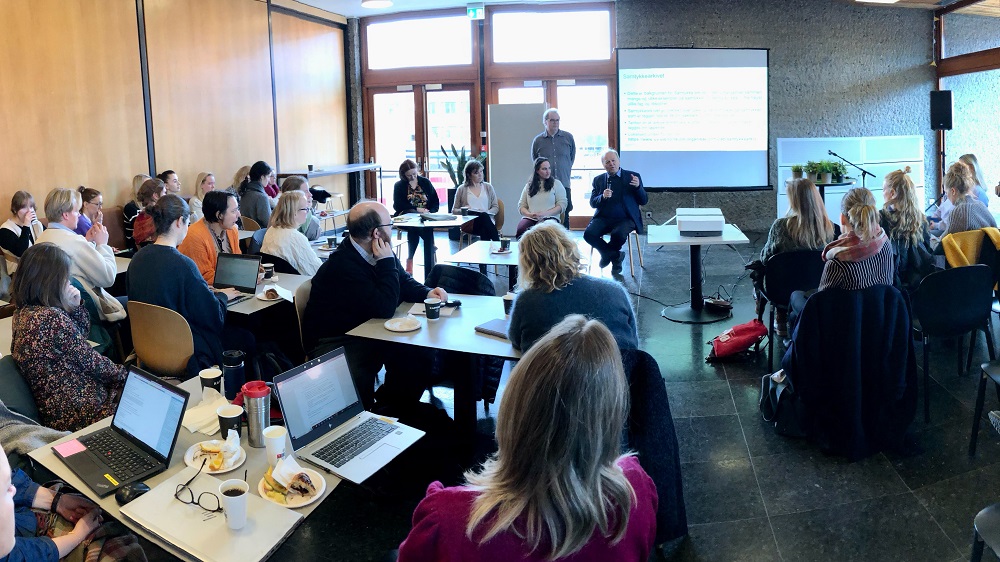To begin tackling the technical, ethical and legal challenges associated with data sharing, a group of academics, research administrators and technical staff, led by Professor Kirsti Klette, have established the QualiFAIR hub-node at the University of Oslo.
QualiFAIR grew out of the need that Klette and her colleagues saw for better routines and infrastructure for sharing personal identifying (but not necessarily sensitive) video data collected through the Teaching and Learning Video Lab at the University of Oslo.
“The Teaching and Learning Video Lab has been the hub for video data at UiO for the last five years, so we knew about people who had the same type of data we had, but in other disciplines. They also had other types of non-anonymised data like interviews, field notes and so on."
Cooperation across disciplines
Klette describes bringing together different types of academics to start solving some of the challenges linked to sharing and reusing qualitative data.
“We collected a bunch of researchers from seven different faculties, disciplines like psychology, medicine, social anthropology, political science, music, education, and so on. All these researchers became a part of this hub because of their own experiences with ‘problematic’ data.”
The Hub has held a series meetings and open seminars to work on issues pertaining to data sharing. The group have set themselves a formidable task. In addition to the technical and legal issues that need to be navigated, Klette says that there are also cultural barriers to data sharing.
“In humanities and social science there hasn't been a strong culture for sharing data, because people often argue that their data is very unique and special, and that one has to have an intimate understanding of the context it comes from in order to analyse it. To some degree that is true, but also I think we are underestimating how we could use these data more productively.”

The response to QualiFAIRs work has nevertheless been overwhelmingly positive. “We were a little bit surprised, because it's kind of a niche subject, but we consistently had 60 or more people at these breakfast seminars. I think we were smart in trying to get a group of not only researchers but also the technical and administrative staff, because the issues we're talking about are of course linked to data curation and management, so we need the administrative side on board, not only the researchers.”
The future of data sharing
In the coming months the QualiFAIR hub will produce a number of short reports, focusing on topics such as infrastructure for data sharing, metadata practices, and issues of ethics and privacy, as well as guidelines for best practices for making data FAIR (Findable, Accessible, Interoperable, Reusable).
Work is also underway on a tagging and metadata project for video data. This work, supervised by Klette, aims to develop a system for tagging classroom videos with keywords that can be used across different data and over time, especially videos relevant for professional training and teacher education. The keywords will help guide researchers and teacher educators to videos that have the kind of content they are looking for.
